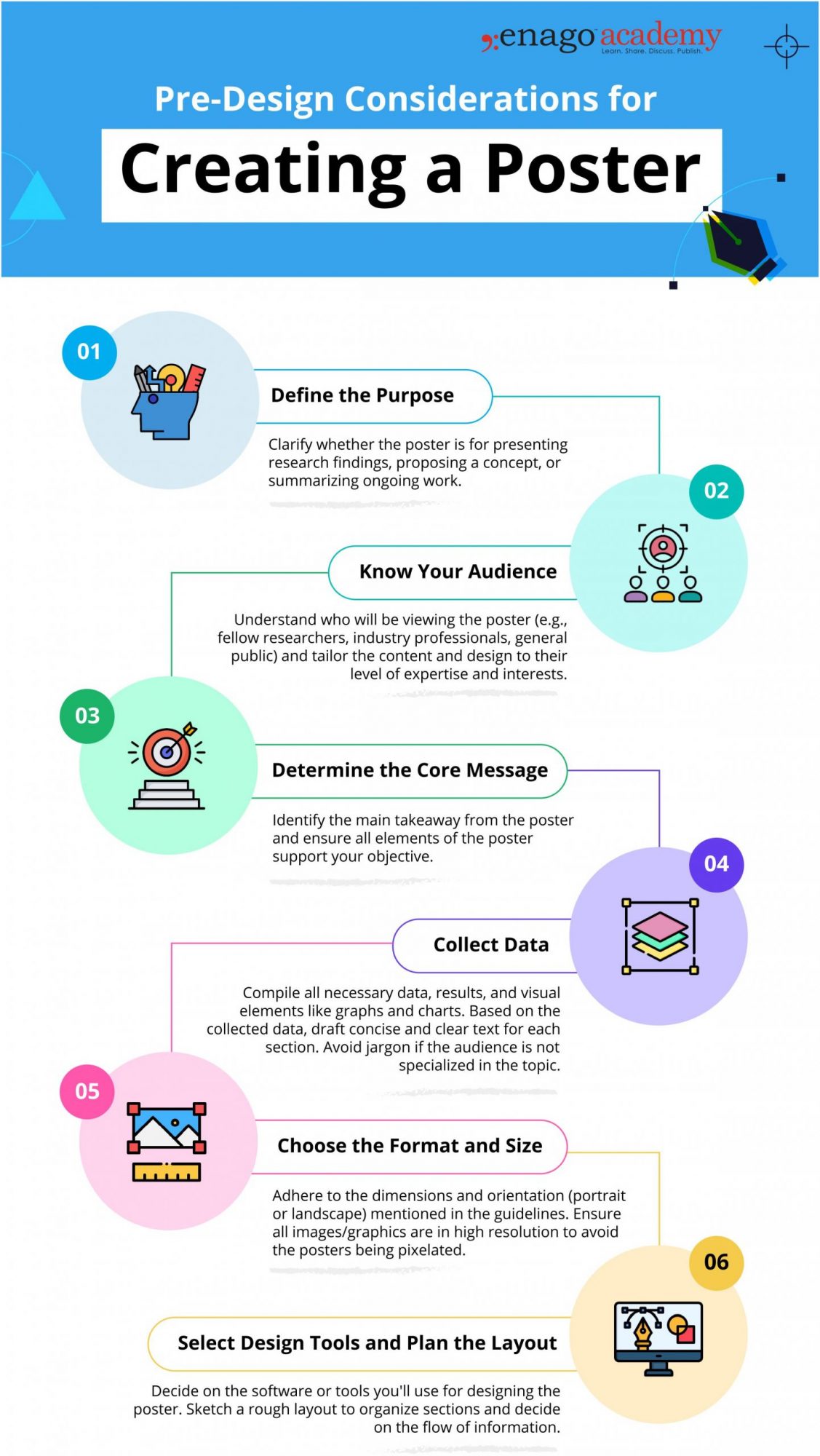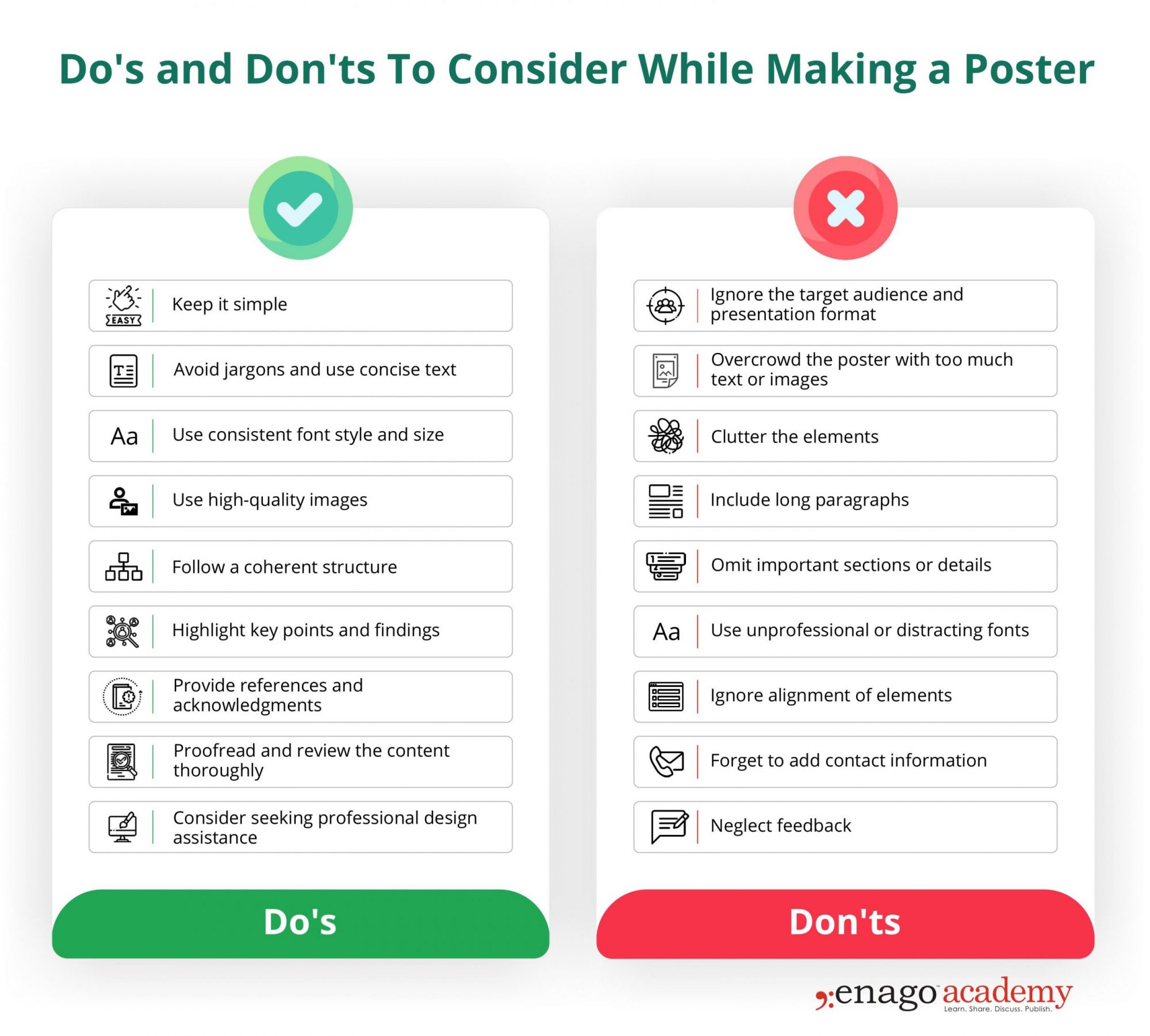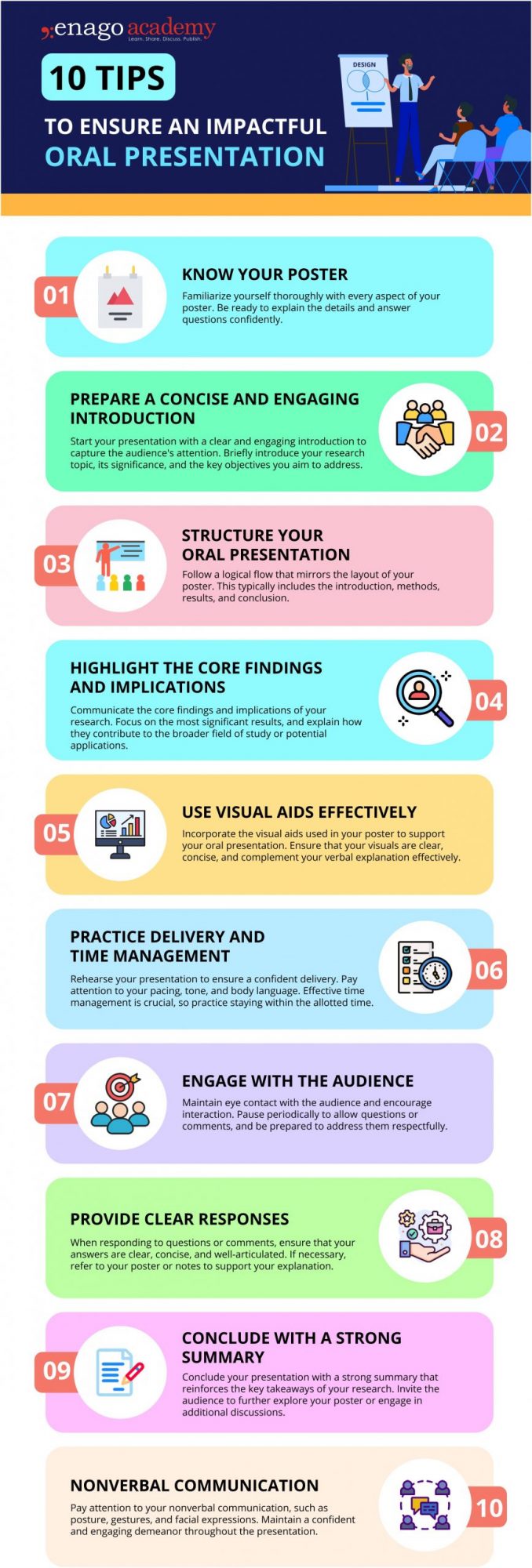How to Create a Poster That Stands Out: Tips for a smooth poster presentation

It was the conference season. Judy was excited to present her first poster! She had seen many posters before and knew they were great for sharing research. However, when she started making her research poster, she realized that it was not a cakewalk!
Pre-design Considerations for Preparing Posters
Is poster creation all about organizing design and data? Not really! Before preparing a poster, you should clarify a few considerations. Here are some of them:
 Judy understood the pre-design considerations of poster-making. However, certain challenges awaited her.
Judy understood the pre-design considerations of poster-making. However, certain challenges awaited her.
Challenges in Creating Posters
Creating visually appealing and informative posters can be difficult. Here are some challenges faced by Judy:
Researchers often face time and resource constraints. This makes it difficult for them to devote sufficient effort in creating a good poster design. To solve this issue, Judy referred to an infographic to understand the “Do’s and Don’ts” of poster making.
 The mode of presentation, whether virtual or in-person, also affects the design considerations. For virtual presentations, ensure that the poster is optimized for digital viewing, with clear and legible text and visuals. For in-person presentations, use larger font sizes and a simple layout to accommodate distance viewing. Here are some tips that Judy referred to for ensuring an impactful oral presentation:
The mode of presentation, whether virtual or in-person, also affects the design considerations. For virtual presentations, ensure that the poster is optimized for digital viewing, with clear and legible text and visuals. For in-person presentations, use larger font sizes and a simple layout to accommodate distance viewing. Here are some tips that Judy referred to for ensuring an impactful oral presentation:
 Judy knew that a great poster would help in creating a mark at the conference. However, she had time constraints and needed to customize the templates to comply with the conference requirements. Therefore, she decided to consult the Enago Poster Presentation service.
Judy knew that a great poster would help in creating a mark at the conference. However, she had time constraints and needed to customize the templates to comply with the conference requirements. Therefore, she decided to consult the Enago Poster Presentation service.
Why Choose Enago Poster Presentation Service?
Enago’s poster presentation service is ideal for early-career and experienced researchers and students who want to present their work at conferences, university departments, and so on. Furthermore, it also helps businesses present ideas and services at professional gatherings.
Enago offered Judy competitive prices with options for different turnaround times and services. Additionally, their language specialists ensured language accuracy and condensed the text to produce a clear and concise poster. This improved the quality of her poster and made it engaging. Additionally, the availability of various delivery options and reliable customer support simplified the whole process.
Advantages of Enago Poster Presentation Service
1. Effectively Communicate Research Findings:
The extensive experience of Enago’s designers helped in creating visually appealing posters. This helped in effective summarization of her work and met the event-specific requirements.
2. Brevity and Accuracy:
Content specialists ensured language accuracy and conciseness in her poster.
3. Quality Assurance:
Multiple quality checks ensured that her poster met the highest quality standards.
4. Customization:
Tailored services helped in adhering to the specific needs of her research and the conference she attended.
Thanks to Enago, Judy’s poster looked professional and attractive. This helped her stand out at the conference and make good connections.
 Creating a good scientific poster requires careful planning, design considerations, and a deep understanding of your research. By seeking professional support, you can craft compelling posters to captivate audiences and effectively communicate your scientific findings.
Creating a good scientific poster requires careful planning, design considerations, and a deep understanding of your research. By seeking professional support, you can craft compelling posters to captivate audiences and effectively communicate your scientific findings.















